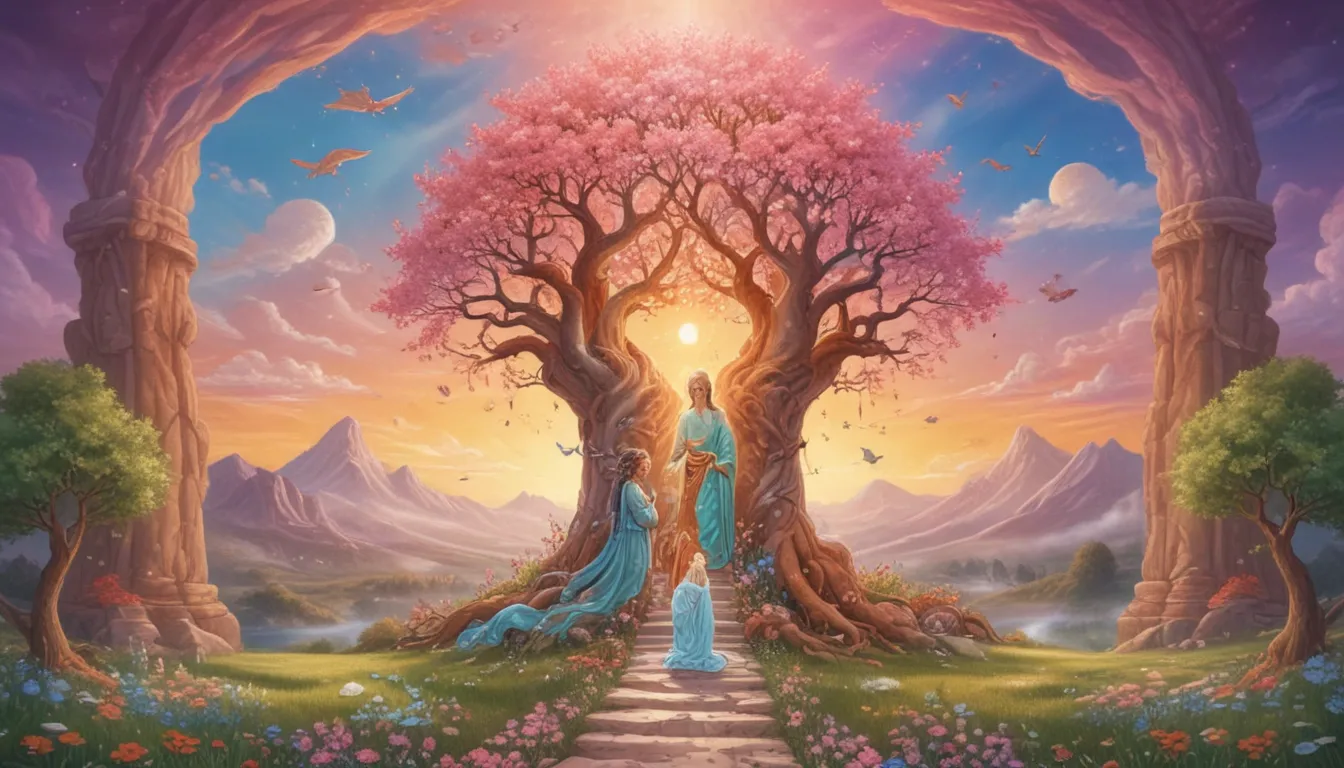
April is a month filled with renewal and rebirth as spring unfolds its beauty. But beyond the blossoming trees and warmer weather, it also holds deep spiritual meaning for many people worldwide. In this comprehensive guide, we will explore the spiritual significance of April, drawing on diverse cultural perspectives to provide you with a rich understanding of this special month.
Pagan and Celtic Traditions: Ostara & Beltane
For Pagans and those who practice Wicca or other neopagan traditions, April has significant meaning connected to the wheel of the year. The two major festivals during this month are Ostara and Beltane.
Ostara (Spring Equinox)
Ostara is a celebration of the spring equinox, which falls around March 20 or 21 in the Northern Hemisphere. It represents the perfect balance between daylight and darkness, symbolizing new beginnings and renewal. This festival honors the goddess Ostara, who personifies fertility, growth, and the rebirth of nature. People often mark this occasion by engaging in rituals related to spring cleaning, planting seeds, and creating altars dedicated to Ostara.
Beltane (May Day)
Beltane, also known as May Day, occurs around April 30 or May 1. It is a time when the energy of the earth reaches its peak, celebrating fertility, sexuality, and the union of the Goddess and the God. Bonfires are lit to symbolize purification and renewal, while couples may dance together in circles to connect with the spirit of nature. Beltane marks the beginning of summer and the blossoming of love and passion during this season.
Christianity: Easter
In Christian tradition, April is most notably recognized for its celebration of Easter, which commemorates the resurrection of Jesus Christ. The exact date changes each year depending on the lunar calendar but typically falls between March 22 and April 25. This holiday signifies hope, renewal, and redemption after a period of darkness (Lent). Christians often partake in rituals such as attending church services, participating in Easter egg hunts, and sharing festive meals with family and friends.
Hinduism: Ram Navami & Hanuman Jayanti
For Hindus, April holds great spiritual significance as well. Two major Hindu festivals fall during this month: Ram Navami and Hanuman Jayanti.
Ram Navami
Celebrated on the ninth day of the Chaitra month (usually in late March or early April), Ram Navami marks the birthday of Lord Rama, an incarnation of Vishnu and a central figure in the epic Ramayana. Devotees offer prayers, chant mantras, and participate in processions to honor Lord Rama and seek his blessings for prosperity and happiness.
Hanuman Jayanti
Hanuman Jayanti is another significant Hindu festival observed in April, which commemorates the birth of Lord Hanuman – a revered figure known for his devotion to Lord Rama. This celebration typically takes place in the month of Chaitra (usually around March or April) and involves special pujas, recitations from the Ramayana, and the distribution of prasad (holy food).
Jewish Traditions: Passover & Yom HaShoah
April is also an important month for Jews, with two significant holidays falling within this period.
Passover (Pesach)
Passover, or Pesach, is an eight-day festival that begins on the 15th day of the Hebrew month of Nisan (usually in late March or early April). It commemorates the exodus of the Israelites from slavery in ancient Egypt. During this time, Jewish families come together to celebrate with a special meal called the Seder, where they retell the story of their ancestors’ journey and give thanks for their freedom.
Yom HaShoah (Holocaust Remembrance Day)
Yom HaShoah, observed on the 27th of Nisan (usually in April), is a day dedicated to remembering the six million Jews who perished in the Holocaust during World War II. It serves as an opportunity for reflection and mourning while honoring the victims and survivors of this tragic event.
Conclusion
In conclusion, April holds immense spiritual meaning across various cultures and religions. From Pagan festivals like Ostara and Beltane to Christian celebrations such as Easter, Hindu festivals like Ram Navami and Hanuman Jayanti, and Jewish observances like Passover and Yom HaShoah, this month is a time of renewal, growth, and spiritual connection for many people worldwide. By understanding the historical and cultural backgrounds behind these events, we can deepen our appreciation for their significance and find ways to integrate these values into our own lives.





